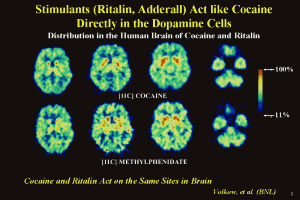ARTICLE SUMMARY: Yes, it can be hard to quit Adderall. Physical changes to brain function occur when you take Adderall daily. So, drug dependence makes quitting hard. Increased tolerance and brain chemistry also make it difficult to quit. This article reviews the main obstacles to quitting and how you can quit safely.
ESTIMATED READING TIME: 5-10 minutes.
TABLE OF CONTENTS
- Why Quitting is Hard
- Addictiveness
- Brain Changes
- Why Quitting Can Be Dangerous
- Medications
- Healthy & Safety
- Who Can Help
Why Quitting is Hard
Adderall is a psychoactive drug, which means that it changes brain chemistry. When you stop using it after a few weeks or more, your body goes through an adjustment period. This is because Adderall can cause both physical and psychological dependence. These are the main reasons it can be hard to stop using on your own.
Because of the potentially intense and dangerous withdrawal symptoms, it is highly recommended that you seek medical help and supervision when you quit taking Adderall.
Continue reading for more on safety protocols when quitting Adderall. We’ll discuss in detail the safety concerns and possible side effects. Then, we invite your comments and/or experiences in the section at the end. In fact, we try to respond personally and promptly to your real life questions.
Addictiveness
Adderall is faily addictive, especially when used to get high. Adderall – a mixture of amphetamine salts -is considered a schedule II drug under the Controlled Substance Act (CSA), which describes this drug as:
- Substance with high potential for abuse.
- Substance with no current accepted medical use in treatment in the U.S.
- Substance which can lead to severe psychological or physical dependence.
Still, high school and university students who have easy access to Adderall take it as a study enhancer. Other professionals use Adderall for work performance. There have also been reports of stimulant abuse by individuals seeking weight loss, enhanced energy, sleep postponement (student “cramming”, long-distance driving), improved athletic performance, or simply enhancement of recreational social activities.
Are these people at risk addiction?
Yes.
NIDA reports that PET scans of the brain show that Adderall can be just as addictive as crack or cocaine.

Adderall can induce a pleasurable high.
Brain Changes
In short, Adderall is difficult to quit because of its effects on the brain. Stimulants increase the activity of brain chemicals called neurotransmitters. In particular, the neurotransmitters dopamine and norepinephrine are stimulated by Adderall. Dopamine is involved with pleasure and rewarding behaviors. Norepinephrine affects blood vessels, blood pressure and heart rate, blood sugar, and breathing.
This study explains how Adderall works:
- Adderall inhibits the reuptake of dopamine in nerve synapses.
- Adderall stimulates additional production of dopamine.
According to the National Institute on Drug Abuse, prescription stimulants like Adderall can affect key pleasure centers within the brain. While people who are taking Adderall for ADHD usually do not experience a high, for others Adderall can cause an intensified euphoria. After a pattern of use, a compulsion to use can occur and a loss of control happens very quickly.
The desire to reach that same pleasure point stimulates you to increase the amounts with each dose. As you lose your ability to experience any pleasure, you might attempt to stop, but unfortunately, you’ll experience strong cravings which will make quitting difficult. Amphetamines are considered a drug with high potential for relapse.
Because the body develops physical dependence on Adderall, withdrawal symptoms occur when you lower doses or quit completely. If these symptoms are not properly managed, they can lead you to relapse during the first 30 DAYS of abstinence, as they progress and change, making you experience new symptoms each week.
What Makes Stopping Dangerous?
Adderall intoxication can make you behave in abnormal ways. Repeated misuse of prescription stimulants, even within a short period, can cause psychosis, anger, or paranoia. As mentioned earlier, chronic use of Adderall creates drug dependence, which makes it difficult to quit due to the following withdrawal symptoms:
- Anxiety.
- Difficulty concentrating.
- Exhaustion.
- Irritability.
- Rapid mood changes.
- Unpleasant dreams or insomnia.
Withdrawal generally produces fatigue, depression, and social disability. Also, quitting Adderall can trigger ideas of suicide. For these reasons, always seek medical help when you want to discontinue use.
Quitting Adderall on your own, or tapering without medical supervision are not recommended. Treatment centers and detox clinics offer a structured program of quitting that includes close monitoring and management of withdrawal, psychological, and emotional symptoms. Feelings of isolation and mourning at the loss of this stimulant, as well as dealing with stress can be real problems which could trigger relapse.
Medications
Medications can be prescribed during withdrawal that might also help you counteract uncomfortable withdrawal symptoms. The following medicines are currently in use for stimulant disorders. You can ask for more information about the following:
- Baclofen prescribed to ease pain.
- Desipramine prescribed for the moderation of depression.
- Gabapentin prescribed to reduce withdrawal symptoms like anxiety and insomnia. This medication acts as a neutralizer of the neurological effects of an extended crack addiction until you are able to fully recover.
- Haloperidol prescribed to reduce symptoms such as: nausea and vomiting, delirium, agitation, acute psychosis, and hallucinations.
- Vigabatrin prescribed to control and reduce feelings of anxiety, which may help prevent relapse.
Health & Safety
Always seek medical supervision when you want to quit Adderall. Feelings of extreme dysphoria and depression can be overwhelming. However, these are expected and can be addressed. Your prescribing doctor, detox clinics, or addiction treatment centers are available to help you manage the difficulties of quitting Adderall, including:
- Providing medications like antidepressants to address withdrawal symptoms.
- Providing relapse prevention tools.
- Treating mental health issues that may be related.
If you get a clearance from doctor that you can withdraw from Adderall at home, only then you are permitted to do so. Your doctor should test you before and after you quit. S/he will also give you detailed guidelines during the process of quitting.
Further…if you hink you’re the only one facing problems…you are not! According to the 2015 National Survey on Drug Use and Health, of the 17.2 million past year users of stimulants aged 12 or older, 11.3 million (or 4.2 percent of the population aged 12 or older) used amphetamine products.
So, when you are ready for help…look for it!
You don’t need to battle dependence on your own.
Who Can Help
Detox clinic professionals are trained to help ease withdrawal symptoms and provide you with psychological and emotional support. You can use SAMHSA online treatment locator to find the closest one in your area or ask for a referral from your physician refer you to one if needed.
Plus, this SAMHSA Advisory on prescription drug misuse points out that people with Adderall problems can also look for help from:
- Addiction counselors, social workers, and/or psychiatric nurses with experience and training in detox and addiction treatment.
- Appropriate dose-tapering and detoxification services.
- Physicians, physician’s assistants, or nurse practitioners with expertise in withdrawal.
- Psychiatrists with expertise in psychotropic medication management.
Further, inpatient rehab can be your gateway for maintaining long term sobriety!
If you are addicted to Adderall, checking in a residential treatment center might be one of your best recovery options. Inpatient treatment facilities have structured programs designed to help you quit, remain sober, and succeed in maintaining your health and wellbeing.
Rehab centers offer medical expertise and counseling that you might find extremely beneficial during treatment. Their experts will give you the proper nutrition and medications you need to detox, and allow you the time to rest and get healthy. There is not a precise length of residential stay, but programs usually last from 30 to 90 days, or for the more severe cases you can stay at the facility even for a year.
Your Questions
Do you still have questions about the difficulties and risks when quitting a stimulant medicine? Please leave your questions, comments or feedback here. We are happy to help answer your questions personally and promptly. And if we do not know the answer to your particular crack question, we will refer you to someone who does.









Related Posts